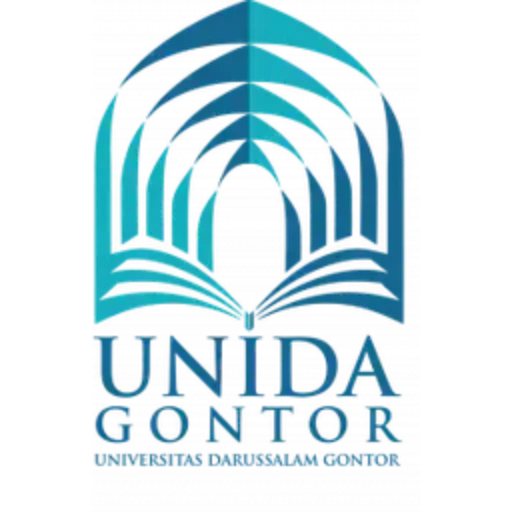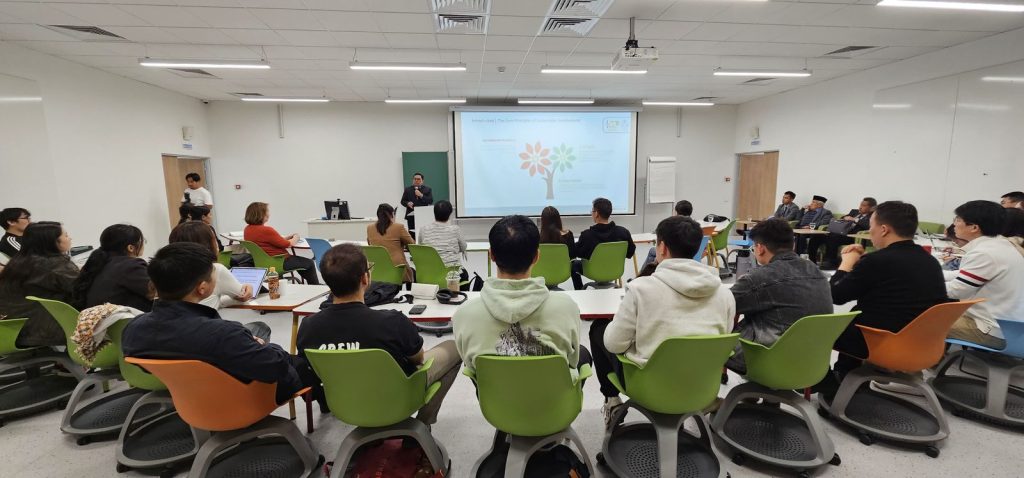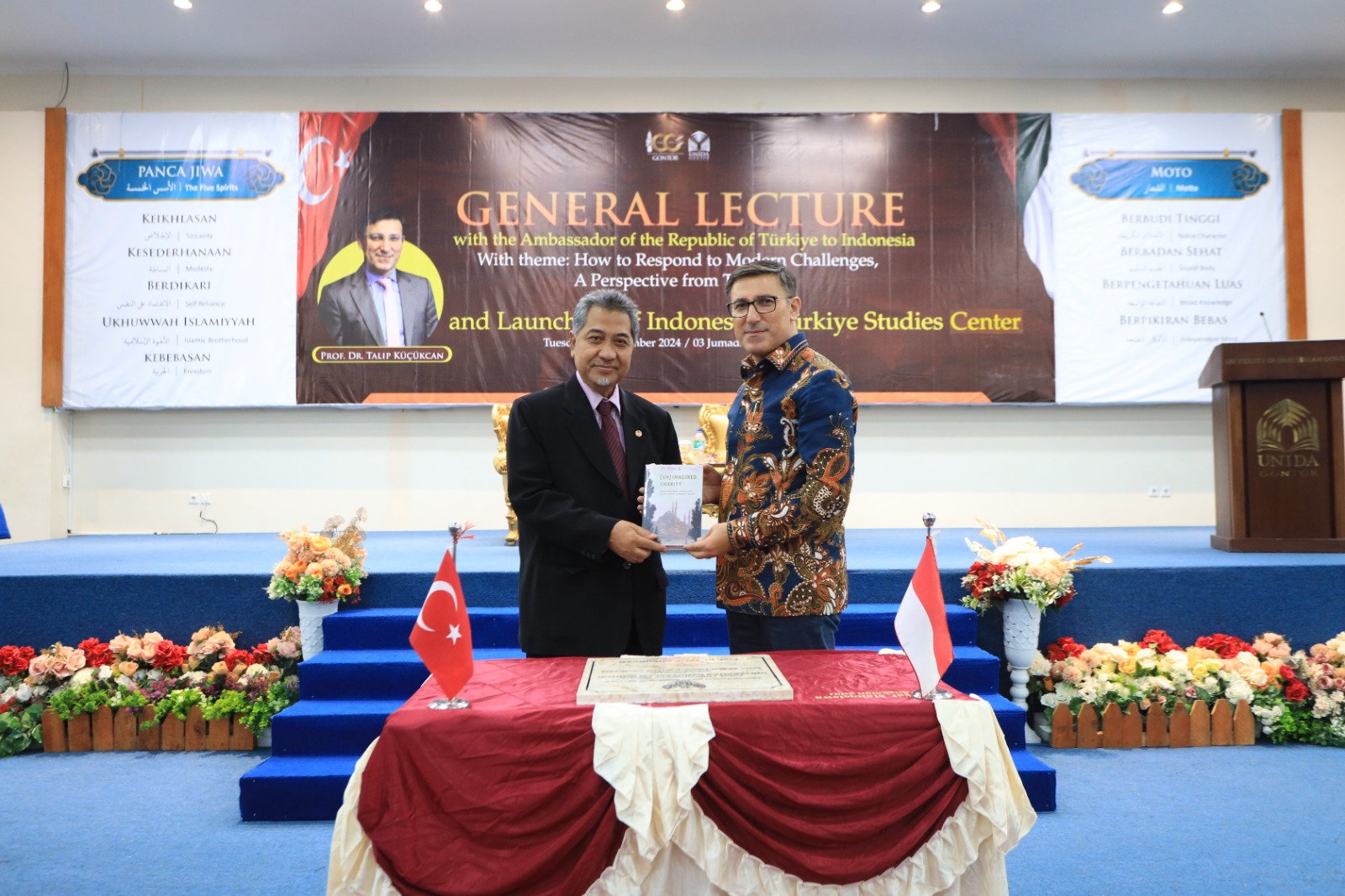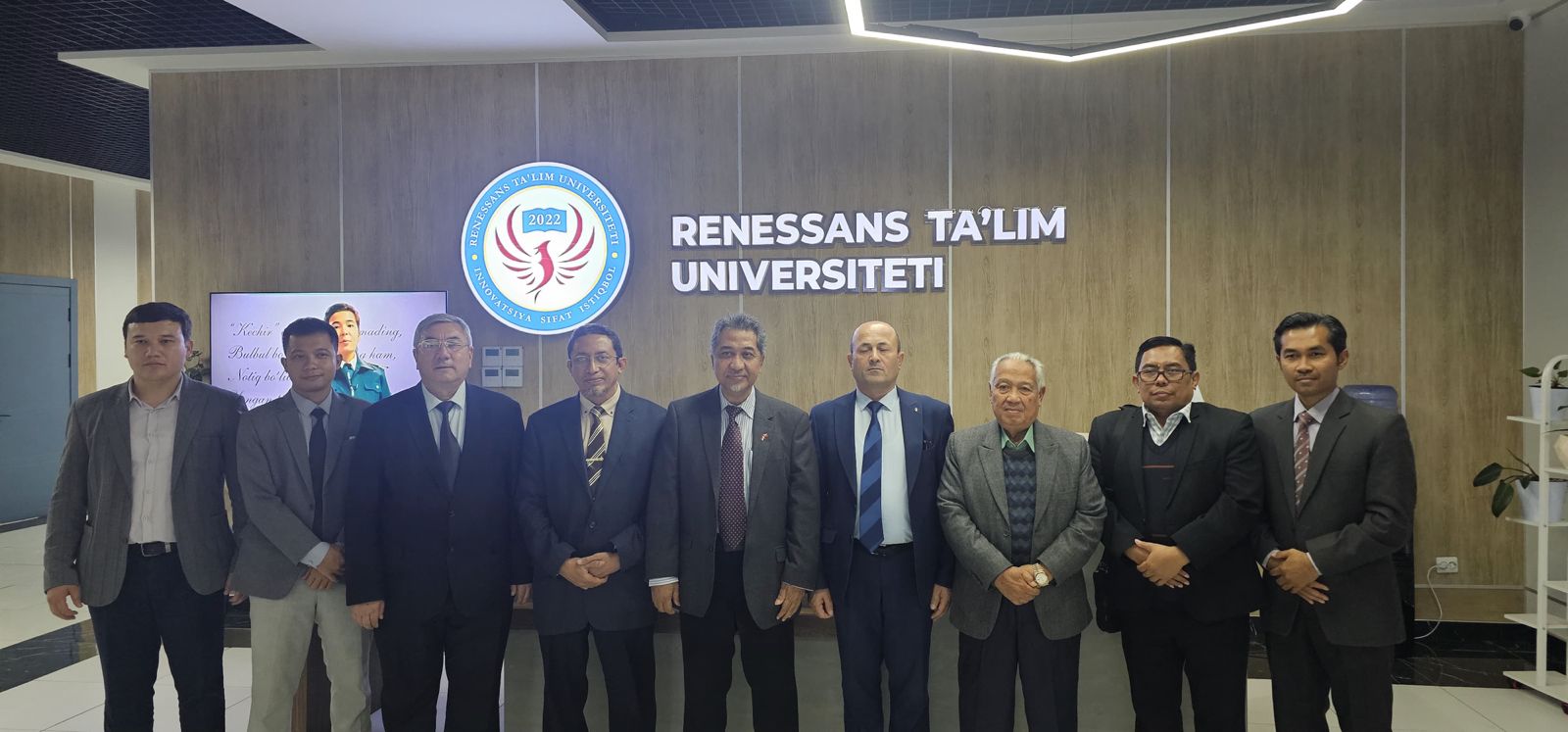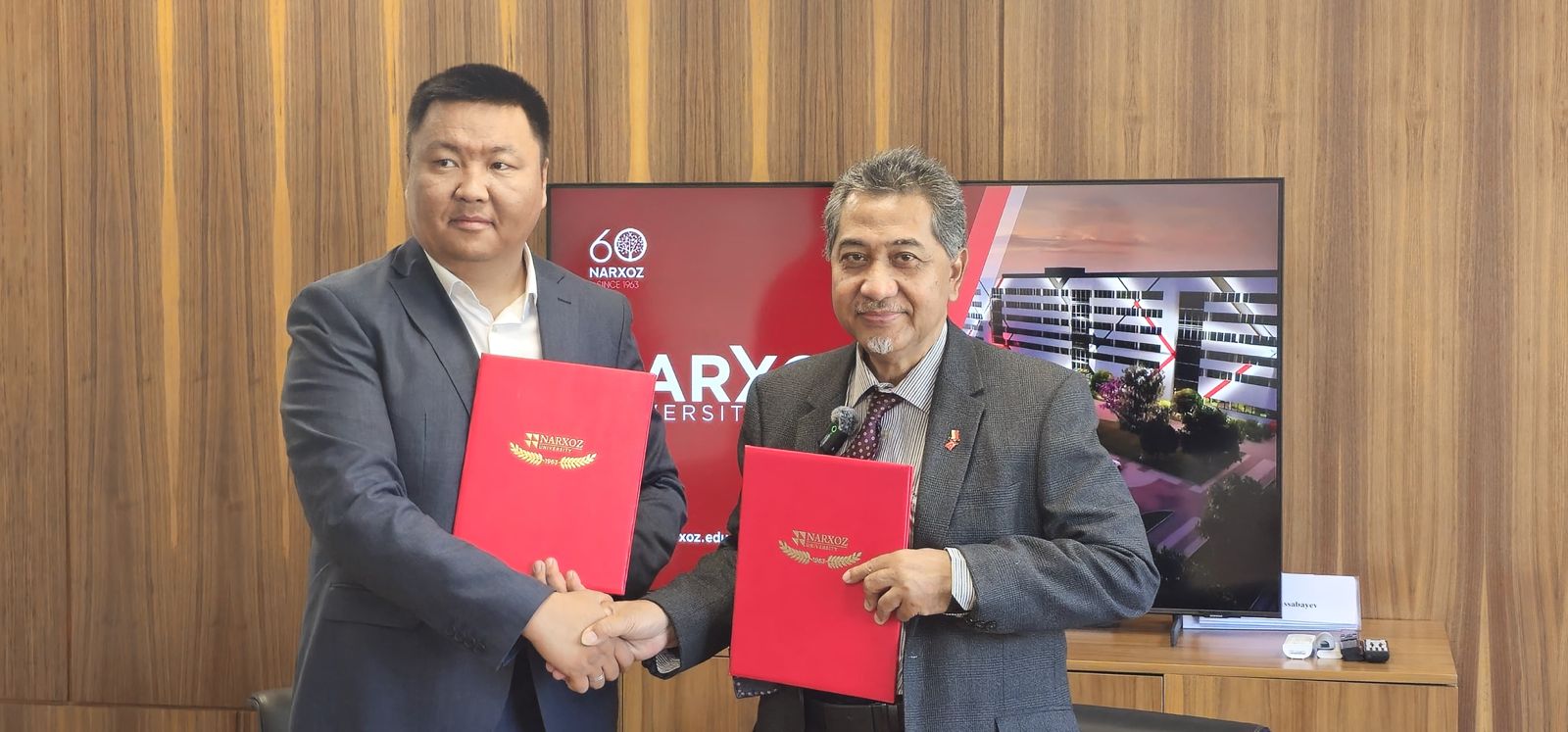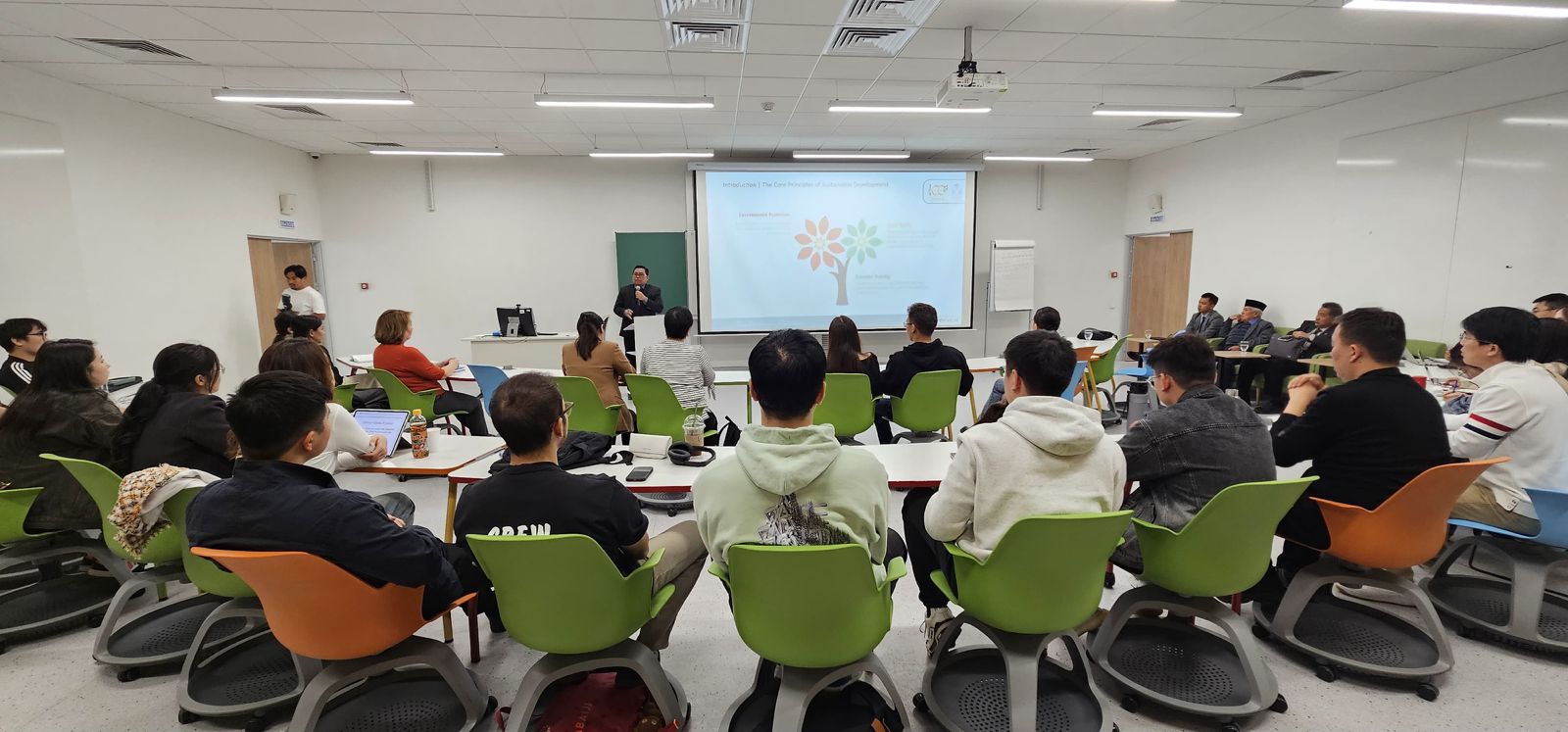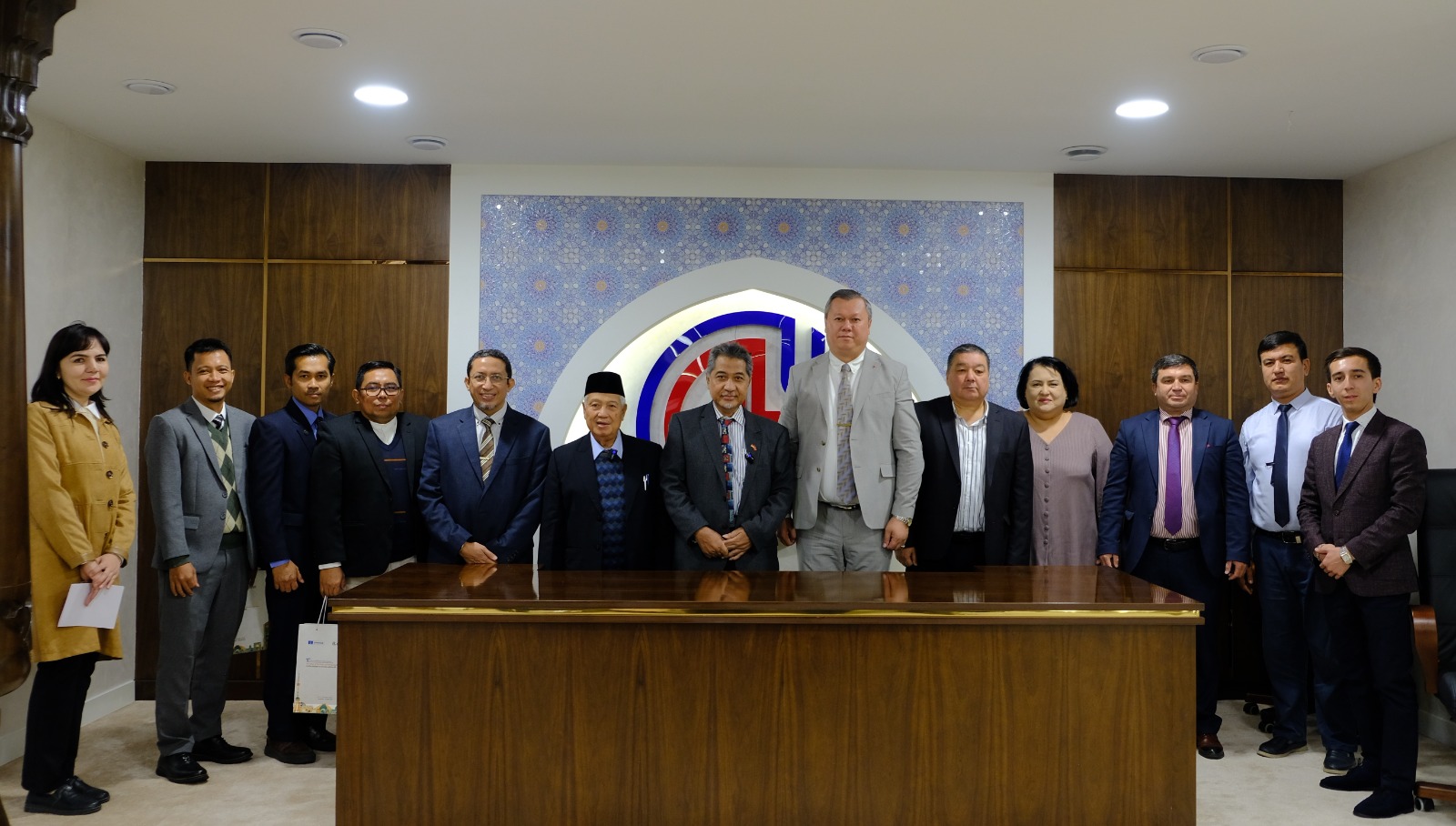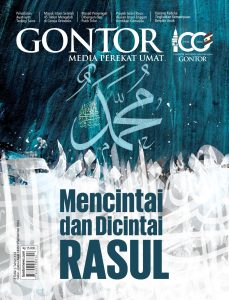UNIDA Gontor – On October 21, 2024, Narxoz University in Kazakhstan hosted a seminar focused on the pivotal role of Islamic finance in advancing the United Nations Sustainable Development Goals (SDGs). This special seminar, held in conjunction with a visit from Universitas Darussalam (UNIDA) Gontor, Indonesia, aimed to deepen the understanding of how Islamic finance can contribute to achieving sustainable, equitable development globally.
The seminar marked a milestone event in the collaborative relationship between Narxoz University and UNIDA Gontor, further solidified by the signing of a Memorandum of Understanding (MoU) between the two institutions. The MoU, signed just prior to the seminar, represents a mutual commitment to explore joint academic and research initiatives, particularly in the areas of economics, business, and Islamic finance. The event was attended by students and faculty members from Narxoz University’s Faculty of Economics and Business, highlighting the growing interest in sustainable finance among the Kazakh academic community.
Associate Professor Dr. Akhmad Affandi Mahfudz, M.Ec., CPIF from UNIDA Gontor, was the keynote speaker. He emphasized the alignment of Islamic finance with the SDGs, pointing out how its ethical foundations and Shariah-compliant practices prioritize social equity, economic justice, and poverty alleviation—core goals of the SDGs. Dr. Affandi introduced the concept of Sustainable Linked-Sukuk (SLS) as an innovative financial instrument designed to align investment opportunities with sustainability objectives while complying with Islamic finance principles.
During his presentation, Dr. Affandi elaborated on how SLS works within existing standards and regulations, integrating financial and sustainability goals. He noted the significant potential of SLS to mobilize funds for SDGs projects, especially in light of the challenges faced by traditional funding sources. With the sluggish growth of global financing for sustainable projects, he argued that Islamic finance, and specifically SLS, could serve as an alternative solution, offering not only financial returns but also positive social and environmental impact.
Dr. Affandi concluded his remarks by calling for a stronger commitment to prioritize Islamic finance as a viable solution to financing the SDGs. He encouraged stakeholders to recognize the unique contributions that Islamic finance can make towards inclusive and sustainable economic growth, particularly in nations with large Muslim populations.
This seminar highlighted the commitment of both UNIDA Gontor and Narxoz University to fostering global partnerships and developing practical, ethical financial solutions to meet the world’s most pressing sustainability challenges.
Editorial: Ahmad Saifulloh
